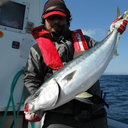Terrestrosin D, a steroidal saponin from Tribulus terrestris L., inhibits growth and angiogenesis of human prostate cancer in vitro and in vivo.
Palabras clave
Abstracto
OBJECTIVE
The aim of this study was to investigate whether terrestrosin D (TED) inhibits the progression of castration-resistant prostate cancer and consider its mechanism.
METHODS
Cell cycle, mitochondrial membrane potential (ΔΨm) and apoptosis were determined by flow cytometry. Caspase-3 activity and vascular endothelial growth factor secretion were detected by a caspase-3 assay and human vascular endothelial growth factor kit, respectively. A PC-3 xenograft mouse model was used to evaluate the anticancer effect of TED in vivo.
RESULTS
In vitro, TED strongly suppressed the growth of prostate cancer cells and endothelial cells in a dose-dependent manner. TED induced cell cycle arrest and apoptosis in PC-3 cells and human umbilical vascular endothelial cells (HUVECs). TED-induced apoptosis did not involve the caspase pathway. TED also decreased ΔΨm in PC-3 cells and HUVECs. In vivo, TED significantly suppressed tumor growth in nude mice bearing PC-3 cells, without any overt toxicity. Immunohistochemical analysis showed TED induced apoptotic cell death and inhibited angiogenesis in xenograft tumor cells.
CONCLUSIONS
Cell cycle arrest and induction of apoptosis in cancer cells and endothelial cells might be plausible mechanisms of actions for the observed antitumor and antiangiogenic activities of TED.


